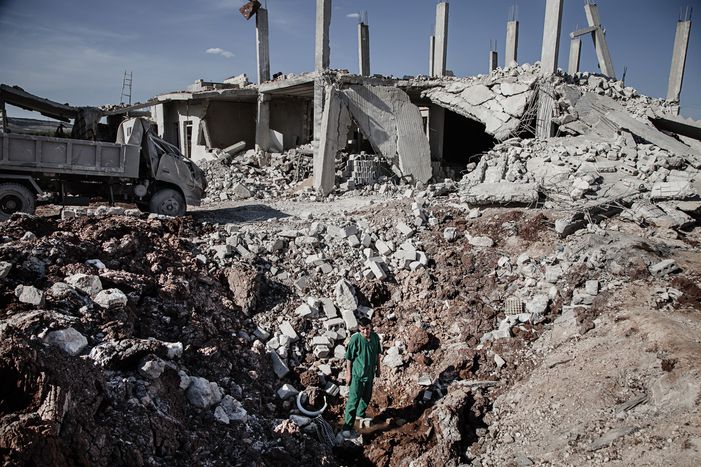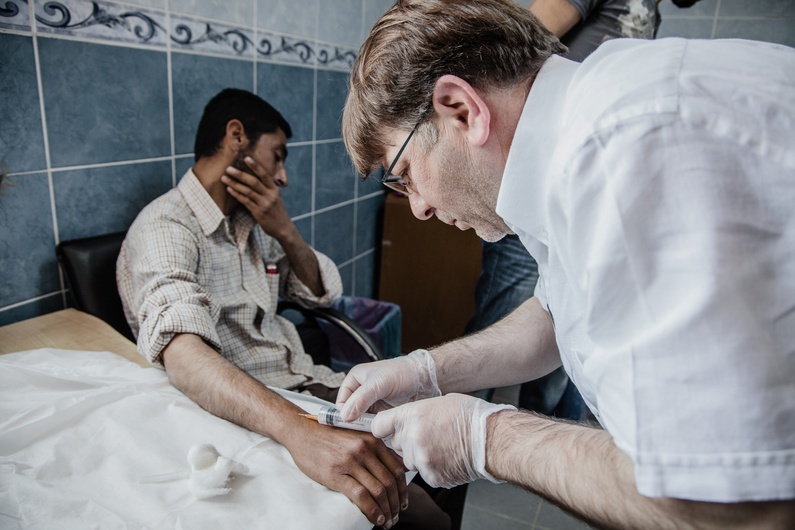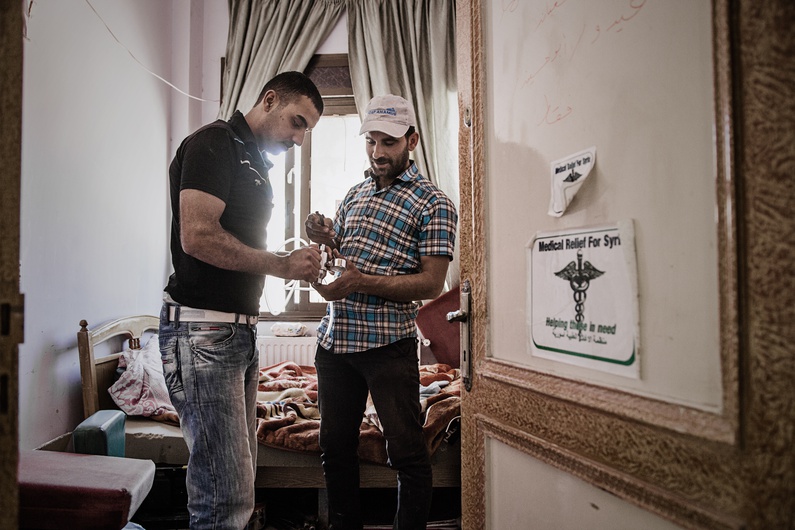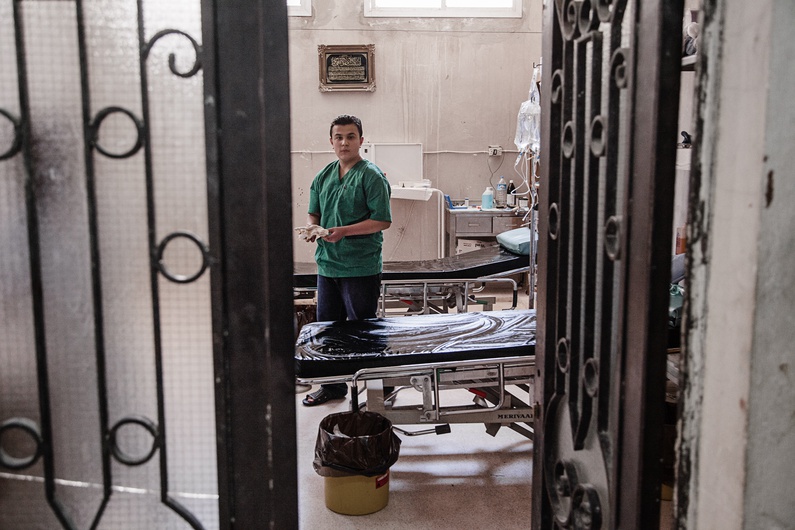
Doctors on the Turkey-Syria Border
Published on
Translation by:
Sarah CoughlanIn Syria, doctors are in short supply and many hospitals have ceased to exist. The World Health Organisation (WHO), estimates there have been more than 500,000 causalities in the country. The few remaining doctors face governmental bombings or kidnap by Islamists. This is the battle at the Turkish/Syrian border.
'The ground here is red. We say that it is for the blood that has been spilled,' whispers Ahmad as he talks to me by the plowed field at the foot of the hills. We are warmed by the autumn sun, surrounded by the road that leads to the border between Turkey and Syria.
Before we're in sight of the government checkpoint, we pass an endless queue of cars and trucks with Turkish license plates. None of them are really going into Syria- they go a few miles, unload their cargo and then turn around and go back. Between one truck and another there’s a packed-up tank resting on a trailer. On the other side of the road, just a little past the Turkish border, there are hundreds of people carrying an array of bags: sports bags, plastics bags, some used carpets. All are quick to load their belongings into the cars and taxis of their friends and relatives waiting for them in Turkey. Ahmad asks where they plan to go. Someone suggests Switzerland or Germany, but mostly they will stay in Turkey for now. The first town across the border is Reyhanli, a few kilometres away. Before the conflict in Syria erupted, Reyhanli had a population of 63, 000- today the population is almost double that, owing to the constant flow of people fleeing Syria.
The Last of the Doctors
Its here I meet Ahmad, a pathologist arriving in Turkey for a few days. A large, tall man in a sports jacket and sunglasses, his smartphone ringing every ten minutes or so. He is back and forth between his hometown, Homs, where Assad’s government is still strong and unassailable. ‘My home was bombed, like so many others. Homs is an Assad stronghold- it is avowedly Shiite, in fact, only Sunni homes were destroyed.’ Regardless, Ahmad continues to work as a doctor in Homs. His family are safe in Turkey and Ahmad shuttles between his country and Reyhanli, where the medical supplies are.
Around 15, 000 doctors fled Syria when the conflict began. According to WHO, 15% of hospitals were damaged or destroyed, and 52% of ambulances are now out of use. ‘Homs has 400, 000 residents,’ says Ahmad, ‘Do you know how many doctors there are in the city now? 14. And each has a different specialty, and frankly they are not well-equipped to help victims of war. I had to advise a carpenter last month who had performed five cesarean sections.’ When I ask if he has ever considered moving to Europe, the answer is yes. He’s already well informed: they asked for 30, 000 euros to smuggle him, his wife and his daughter into Sweden. ‘By sea?’ I ask. Ahmad laughs nervously, ‘I’m sorry, but I’m not that desperate yet. I know that many people are likely to get into Europe by sea, but there are other, safer routes, although they are more expensive.’
No Man’s Land
40km further west, I meet the staff of a major international NGO: Italians, French and Spanish, normally stationed near the Syrian city of Idlib. Their field is called Fellini. Within three weeks however, they find themselves stuck in Antioch, Turkey. ‘Tomorrow morning, I’ll try to convince the Turkish government to allow us back into Syria again,' says Loiq, head of mission. After the car bomb explosion, and the capture of six members of the Red Cross around Idlib, they closed the border to Europeans. While waiting for clearance from the Turkish government, the staff can only coordinate with the Syrian staff via Skype. ‘It’s terrible, but it’s the only way we can treat our patients,’ says Elisa, an Italian psychologist. For now, they remain in Antioch, where, without their lab coats, they are mistaken for tourists. There’s a restlessness attached to the idea of trying to cross the border. The situation has changed lately, ‘The problem is now not simply Assad’s government, but also rebel extremists like ISIS [The Islamic State of Iraq and al-Sham, Ed.] from other Muslim countries. They are fighting for the creation of an Islamic state which would belong neither to Syria nor to the FSA,’ says Elisa, ‘They don’t like the way we operate and try to complicate things for us. Most Syrians wonder who these people are and what it is that they want.’
 On 16th September 2013, 55 doctors from across the world wrote an open letter to the Syrian government and all parties involved in the conflict, asking that they desist from attacking medical personnel and facilities within Syria. In the letter, published in The Lancet, the doctors refer to the situation as, ‘one of the greatest humanitarian emergencies since the end of the Cold War.’
On 16th September 2013, 55 doctors from across the world wrote an open letter to the Syrian government and all parties involved in the conflict, asking that they desist from attacking medical personnel and facilities within Syria. In the letter, published in The Lancet, the doctors refer to the situation as, ‘one of the greatest humanitarian emergencies since the end of the Cold War.’
While in Europe non-military intervention is discussed, Elisa writes me an email saying that Fellini will be closed permanently. It is another bipartisan defeat for the Syrians- whether they are combatants or not.
A documentary in English about the city of Homs.
Translated from Siria: il confine dei medici



